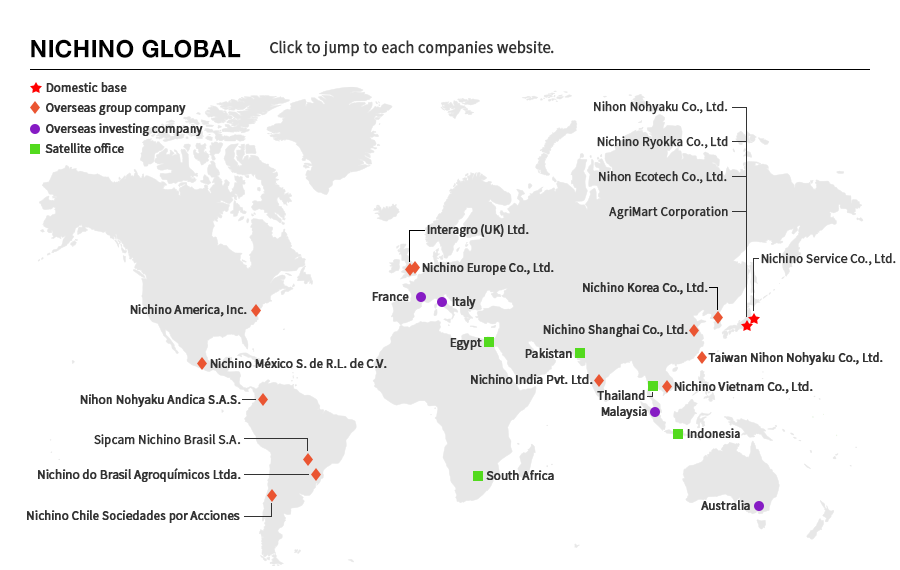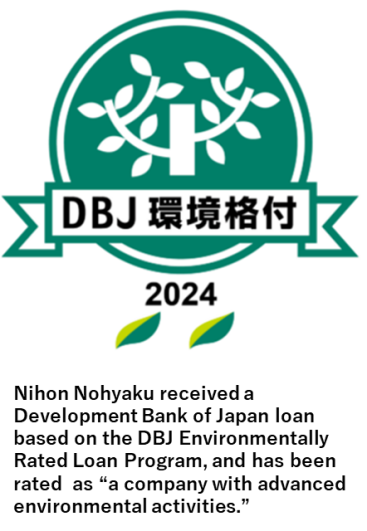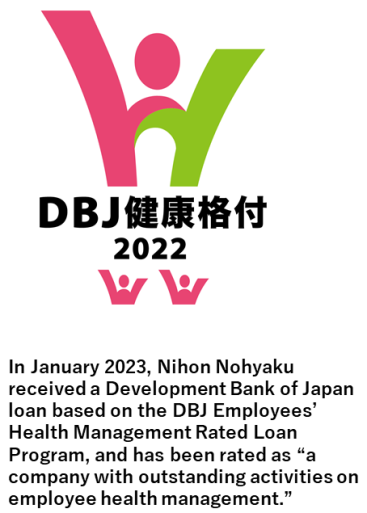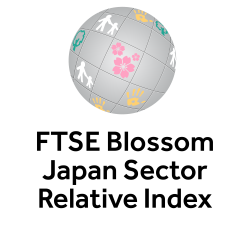Participation in Initiatives and External Evaluation
Participation in Initiatives
United Nations Global Compact (UNGC)
The United Nations Global Compact (UNGC) is a voluntary initiative, where private companies and organizations affiliated with the United Nations act as good members of society and achieve sustainable growth by demonstrating responsible and creative leadership.
Companies and organizations that sign the UNGC are committed to ten principles related to the protection of human rights, elimination of unfair labor, environmental protection, and prevention of corruption. Based on the commitment of company leaders themselves to these ten principles, companies are required to continuously make efforts to realize the principles.
The Nihon Nohyaku Group has signed the UNGC (https://unglobalcompact.org/what-is-gc/participants/151047-Nihon-Nohyaku-co-ltd), thereby declaring to stakeholders and the international community our corporate stance of contributing to society through appropriate business activities.
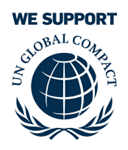
Sustainable Development Goals (SDGs)
Sustainable Development Goals (SDGs) are the common goals of the international community set forth in the “2030 Agenda for Sustainable Development,” which was unanimously adopted by member states at the United Nations summit in September 2015. The aim is to create a sustainable and better world by 2030. Consisting of 17 goals and 169 targets, the Agenda pledges to realize a global society that will “leave no one behind (LNOB).”
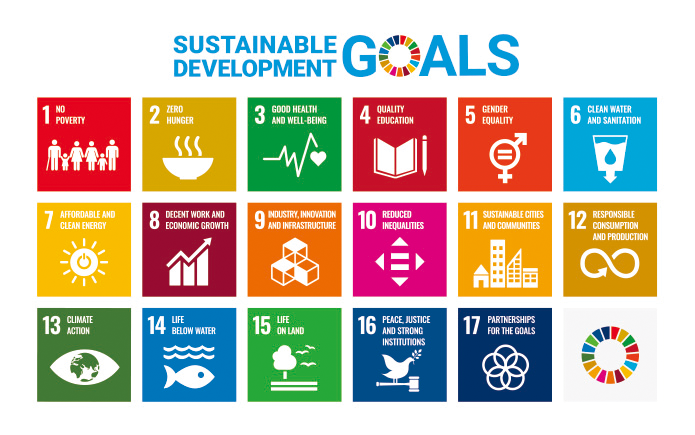
Responsible Care
In the chemical industry, each company handling chemical substances secures “the environment, safety and health” and publishes the results of its activities regarding all its processes, ranging from R&D through manufacturing, logistics, use, final consumption, and recycling, to the disposal of the chemical products, while maintaining a dialogue and communication with society. These activities are called “Responsible Care (RC) activities.”
In September 1999, we joined the Japan Responsible Care Council and began a full-scale implementation of our RC activities. Since 2012, we have been a member of the Japan Chemical Industry Association’s Responsible Care Committee, which was reorganized from the Japan Responsible Care Council. Currently, we have registered four domestic Group companies as RC activities-related companies, and our activities are still ongoing.
Moreover, in 2014, we signed the RC Global Charter (resigned by then President Tomoi in January 2020), declaring our commitment to uphold the international principles of RC and to strengthen our efforts in conducting RC activities.
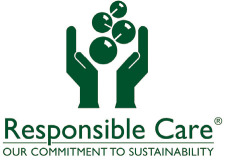
Task Force on Climate-related Financial Disclosures (TCFD)
The TCFD is a task force established by the Financial Stability Board (FSB) at the request of the G20 to consider how climate-related information should be disclosed and how financial institutions should respond. In its final report, the TCFD recommends that companies assess and disclose information on the financial impact of climate change.
In an effort to address climate change, the Group has announced its endorsement of the TCFD recommendations (PDF: 201KB).
External Evaluation
DBJ Certification Programs
The DBJ certification programs use an original screening system developed by the Development Bank of Japan (DBJ) to evaluate companies’ non-financial information and select outstanding companies to provide loans. There are three types of ratings: “Environmental Ratings” to evaluate environmental management and sustainability management, “BCM Ratings” to evaluate disaster prevention and business continuity efforts, and “Health Management Ratings” to evaluate employee wellness and health management. We have obtained certification for the “Environmental Ratings” and “Health Management Ratings” programs in 2024 and 2023, respectively.
Selected as a constiuent of the “FTSE Blossom Japan Sector Relative Index”
The FTSE Blossom Japan Sector Relative Index was created by FTSE Russell, a global index provider, and reflects the relative performance of Japanese companies with superior environmental, social and governance (ESG) performance in their respective sectors.
The Index is selected by the General Pension Investment Fund (GPIF) as an ESG index and is one of the leading indexes for ESG investment.

